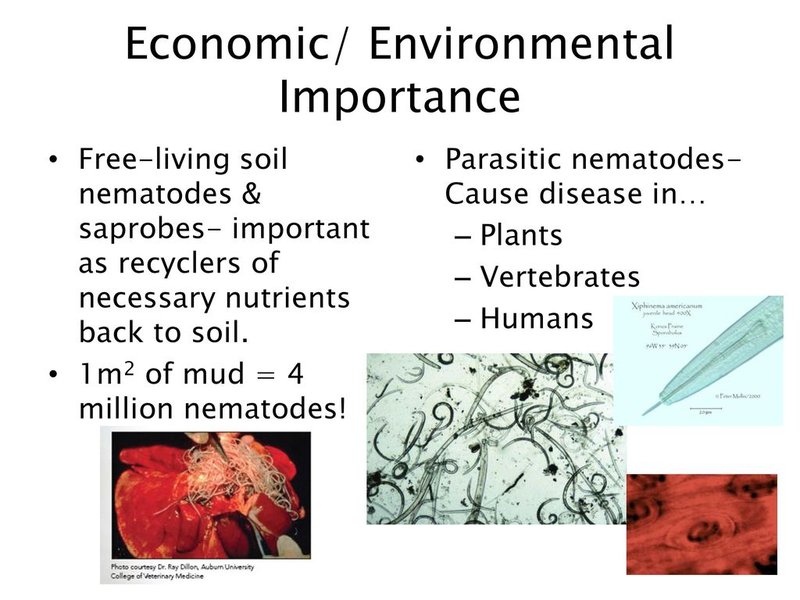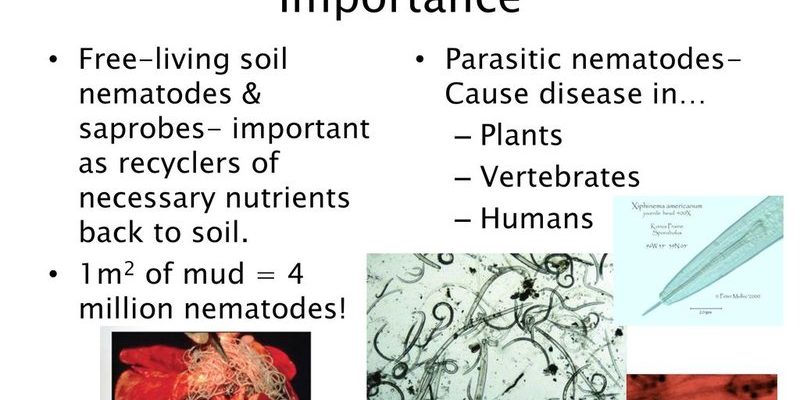
Roundworms, or nematodes, are everywhere—from the deepest depths of the ocean to your backyard garden. Their presence is a sign of a healthy ecosystem; they play a role similar to that of compost in your kitchen—transforming waste into something useful. And believe it or not, they can even help scientists understand climate change! So, whether you’re a curious nature lover or just someone looking to understand the world a bit better, the story of roundworms is one worth telling.
What Are Roundworms?
Roundworms belong to the phylum Nematoda, and they can be found in almost every habitat imaginable. They range from a few millimeters to several meters long. Most roundworms are small and often go unnoticed. In fact, millions of them can fit in a single teaspoon of soil! What’s fascinating is their incredibly diverse lifestyles. Some are free-living, thriving in soil or water, while others are parasitic, living inside plants or animals.
Think of them like tiny engines that keep the ecosystem running. They help decompose organic material, making nutrients available to plants. This relationship with plants is vital because it supports the food web that sustains larger animals, including us.
The Roles of Roundworms in Soil Health
Roundworms contribute significantly to soil health. By breaking down dead plant and animal matter, they enrich the soil with nutrients. This process helps create a fertile environment for plants to grow.
– Nutrient Cycling: As roundworms decompose organic material, they release nutrients like nitrogen and phosphorus back into the soil. This process not only benefits plants but also supports the broader food chain.
– Soil Structure: Their movements through the soil help aerate it. Better aeration means more oxygen can reach plant roots, promoting healthier growth.
You might be wondering how such small creatures can have such a big impact. Well, it’s like having a team of busy little workers tirelessly contributing to a greater cause.
How Roundworms Influence Plant Growth
Let’s take a closer look at how roundworms, or nematodes, directly influence plant growth. Plants need nutrients, water, and healthy soil to thrive. Here’s where these tiny allies come into play.
Roundworms are particularly helpful in forming beneficial relationships with plant roots. Some types are known as plant-parasitic nematodes. While these types can sometimes harm crops, others help in various ways, including nutrient uptake.
1. Symbiotic Relationships: Certain roundworms can form alliances with plants, improving their nutrient absorption. This interaction often results in healthier plants that yield more fruit or flowers.
2. Disease Suppression: Some nematodes prey on harmful pathogens in the soil. By keeping these pests in check, they help protect plant health.
It’s like having a secret army that fights off the bad guys, allowing the good plants to flourish!
The Role of Roundworms in Pest Control
Here’s a cool fact: some roundworms can be used as a natural method for pest control! They’re kind of like the heroes of the soil, helping to manage the populations of pests that can threaten crops.
– Biological Control Agents: Certain species of roundworms are used in agriculture to control insects and other pests naturally. This method can reduce the need for chemical pesticides, which can be harmful to the environment.
– Ecosystem Balance: By controlling pest populations, roundworms help maintain a balance in the ecosystem that supports all sorts of other life.
So, they’re not just wriggly little guys; they actively contribute to the health of their environments.
Roundworms in Aquatic Ecosystems
Roundworms are also essential in aquatic ecosystems. They live in oceans, rivers, and wetlands, contributing to the health of these environments too!
– Breaking Down Organic Matter: In these habitats, roundworms help decompose dead material, which is crucial for nutrient cycling in aquatic ecosystems.
– Food for Other Animals: They serve as a food source for various animals, including fish and invertebrates. This makes them an important link in the food web.
Imagine a bustling underwater city where roundworms are working tirelessly to keep everything in balance. Their existence supports larger fish, which then support even larger predators—it’s all connected!
Roundworms and Climate Change
You might not think of roundworms when it comes to climate change, but they actually play a role here too. Their activities in soil and aquatic ecosystems help regulate greenhouse gases.
– Carbon Cycling: By breaking down organic matter, roundworms help sequester carbon in the soil. Healthier soil can store more carbon, which is crucial in mitigating climate change.
– Monitoring Ecosystem Health: Scientists use roundworms as indicators of ecosystem health. A healthy population of these worms often means a thriving environment, while a decline can signal problems.
It’s remarkable how these unassuming creatures can give us insights into our planet’s health!
Roundworms might be tiny, but their ecological importance is monumental. From enriching our soil and aiding plant growth to controlling pests and even influencing climate change, they play a foundational role in our ecosystems. It’s easy to overlook them, but the more we learn, the more we realize how vital they are.
So next time you’re in the garden or even just enjoying a moment of nature, remember those little wrigglers underfoot. They might just be the unsung heroes that keep our planet thriving. Understanding their role can help us appreciate the delicate balance of nature—and who knows? It might inspire us to take better care of our environment.

